If you’;vous cherchez à ajouter du style et de la profondeur à vos créations, 3La broderie en mousse feuilletée D est la technique parfaite à explorer. Cette méthode vous permet de créer des reliefs, des motifs accrocheurs qui font ressortir votre broderie.
Dans ce guide, we’;Je couvrirai tout ce que vous devez savoir, du choix des bons matériaux à la maîtrise du processus de couture.
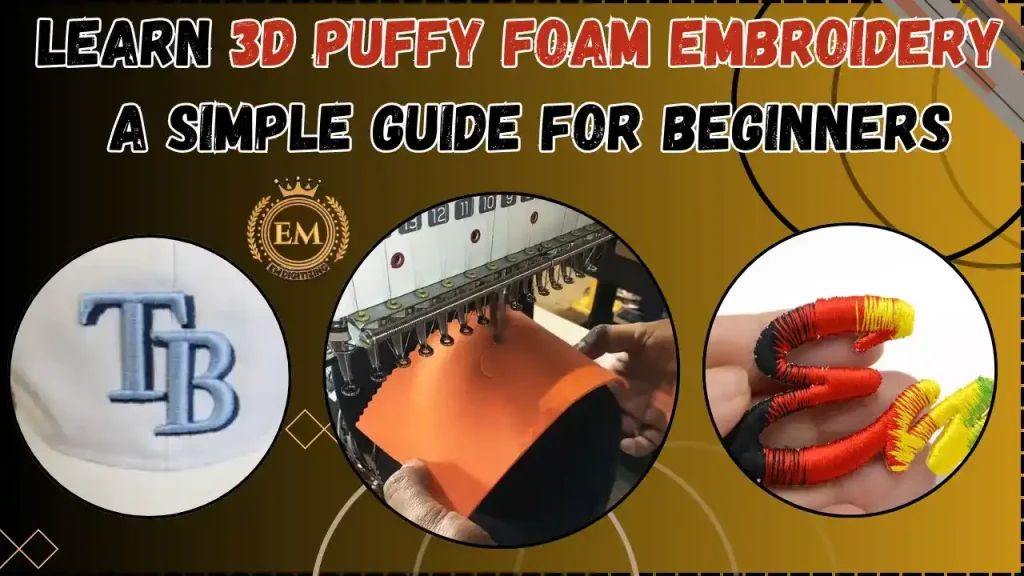
Whether you’;Vous êtes nouveau dans le monde de la broderie 3D ou vous cherchez à améliorer votre technique, you’;vous trouverez des conseils pratiques pour créer de superbes, conceptions professionnelles.
Allons-y!
Apprenez la broderie 3D en mousse gonflée: Un guide simple pour les débutants
Comprendre la broderie 3D en mousse gonflée
C'est une méthode où de la mousse est placée sous les points de broderie pour créer un relief, 3Effet D. Cette technique donne à vos créations un caractère audacieux, aspect texturé, les faire ressortir et ajouter une couche supplémentaire d'intérêt visuel.
Matériaux nécessaires pour la broderie gonflée 3D
Pour commencer 3Broderie D, you’;Vous aurez besoin de quelques matériaux essentiels qui garantiront que votre design se démarque avec un style audacieux., effet surélevé.
Here’;Il s'agit d'une liste des principales fournitures nécessaires pour créer une broderie d'aspect professionnel..
- Feuilles de mousse gonflées
- Fil à broder
- Tissu
- Stabilisateur
- Adhésif (Facultatif)
- Machine à broder
Feuilles de mousse gonflées
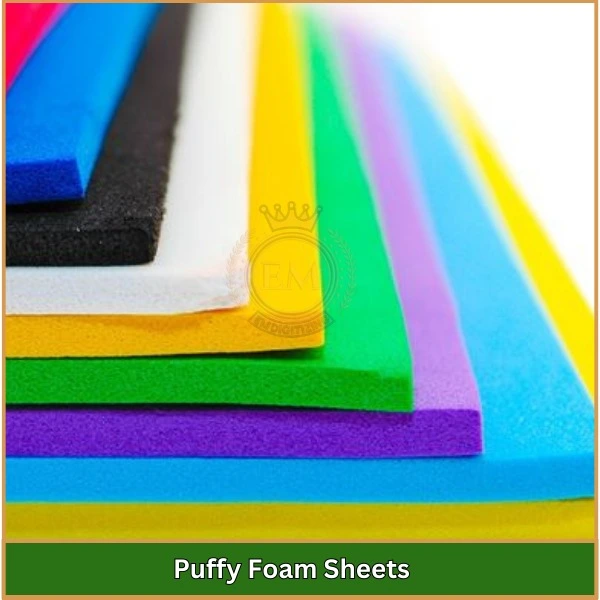
- Espèces: Polyéthylène haute densité (PEHD) et le polyuréthane sont les principales mousses utilisées, spécialement conçu pour la broderie.
- Épaisseur: Disponible en 2mm, 3millimètre, et 6mm, avec des mousses plus épaisses créant un effet 3D plus prononcé. Les choix populaires incluent la mousse E-Zee 3D et la mousse dure Bodybuilder., les deux font 3 mm d'épaisseur.
- Couleur: Généralement trouvé en blanc et noir, sélectionnez une couleur de mousse qui contraste avec le fil pour mettre en valeur efficacement le motif.
Quelle épaisseur de mousse est recommandée pour la broderie 3D? Pour la broderie feuilletée 3D, une épaisseur de mousse de 3 mm est recommandée car elle offre l'équilibre idéal entre hauteur et stabilité, créant un effet 3D proéminent tout en assurant la durabilité pendant le processus de broderie.
Fil à broder
- Taper: Optez pour du fort, fils de polyester ou de rayonne de haute qualité. Assurer le couleur de fil soit complète ou contraste avec la mousse pour un impact visuel.
- Considérations: Sélectionnez des couleurs de fil qui se mélangent à la mousse pour minimiser les problèmes de visibilité où la mousse peut apparaître à travers les points..
Tissu
- Matériel: Les tissus idéaux sont des tissus stables comme le sergé, jean, ou toile, qui soutiennent bien la mousse et permettent des coutures précises sans distorsion.
- La stabilité: Choisissez des tissus suffisamment robustes pour supporter les effets élevés de la broderie bouffante.
Stabilisateur
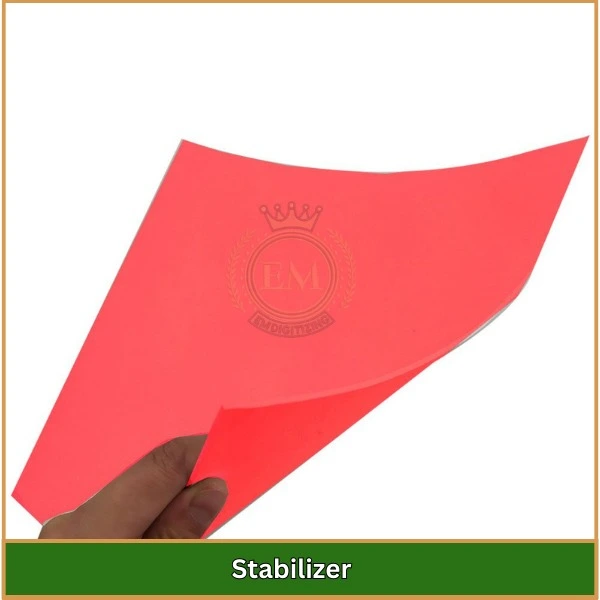
- But: Les stabilisateurs empêchent la déformation du tissu pendant la broderie, fournissant un soutien essentiel au tissu et à la mousse.
- Espèces: Les stabilisateurs Cutaway sont recommandés pour leur durabilité et sont particulièrement adaptés à une utilisation avec des mousses plus épaisses..
Adhésif (Facultatif)
- Usage: Certains types de mousse sont livrés avec un support adhésif, facilitant la fixation au tissu avant la broderie, idéal pour les conceptions complexes ou les pièces plus petites.
Machine à broder
- Caractéristiques: Une machine capable de traiter des matériaux plus épais et équipée de logiciel de numérisation est crucial pour réussir une broderie feuilletée 3D. Assurez-vous que les paramètres de la machine sont correctement ajustés pour la couture en mousse.
Comment faire de la broderie 3D en mousse gonflée | Processus étape par étape
Explorez les bases étape par étape de la création d'une broderie en mousse 3D vibrante et dynamique.. Perfectionnez vos projets avec précision du début à la fin!
Marcher 1: Choisissez votre conception
Sélectionnez une mousse gonflée 3D motifs de broderie adapté à la broderie 3D. Simple, les designs audacieux fonctionnent mieux car ils permettent à la mousse d’améliorer efficacement la profondeur.
À la recherche du design parfait? Visite EMnumérisation! Explorez notre vaste collection de motifs de broderie en mousse gonflée gratuits, conçus pour des résultats éclatants et dynamiques..
Et si vous cherchez quelque chose d'unique à vous, nos services experts en numérisation peuvent donner vie à vos conceptions personnalisées, parfaitement adaptées à votre vision!
Marcher 2: Sélectionnez les matériaux
Choisissez le bon type de mousse, fil, et du tissu. Utilisez de la mousse haute densité, fils résistants en polyester ou en rayonne, et des tissus stables comme le sergé ou la toile.
Marcher 3: Préparez le tissu
Fixez le tissu dans le cercle à broder s'assurer qu'il est tendu et stable. Cela évite tout mouvement qui pourrait déformer la couture.
Marcher 4: Placez le stabilisateur
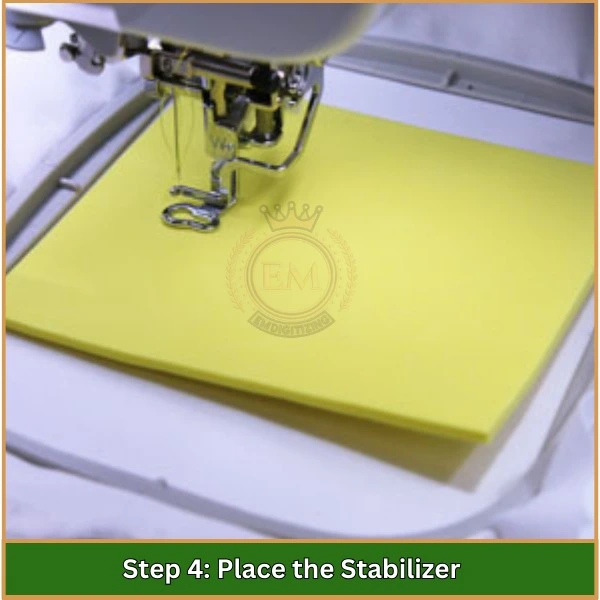
Utilisez un stabilisateur découpé derrière le tissu pour fournir un soutien supplémentaire et maintenir l'intégrité du tissu pendant le processus de broderie..
Marcher 5: Positionner la mousse
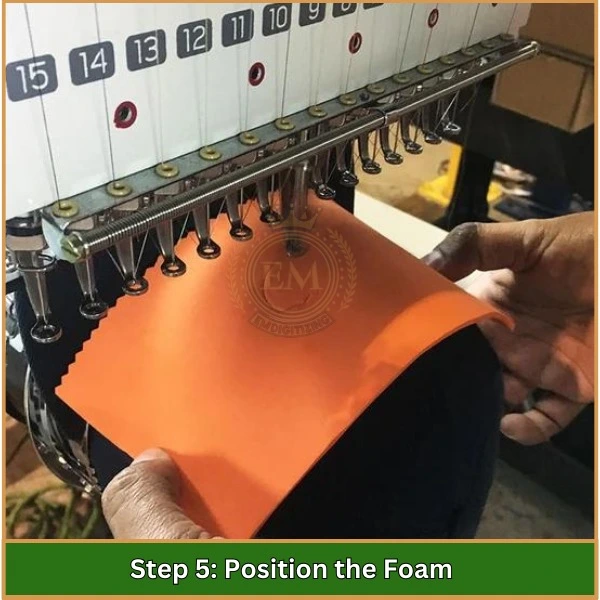
Coupez la mousse légèrement plus grande que la zone de motif et placez-la sur le tissu à l'intérieur du cerceau.. Assurez-vous qu'il couvre toutes les parties du motif qui sera brodé.
Marcher 6: Commencez à broder
Commencez à broder sur la mousse. La machine à broder doit être réglée spécifiquement pour la mousse gonflée polices de broderie, ajuster la pénétration de l'aiguille et la densité du point en conséquence.
Marcher 7: Couper l'excès de mousse
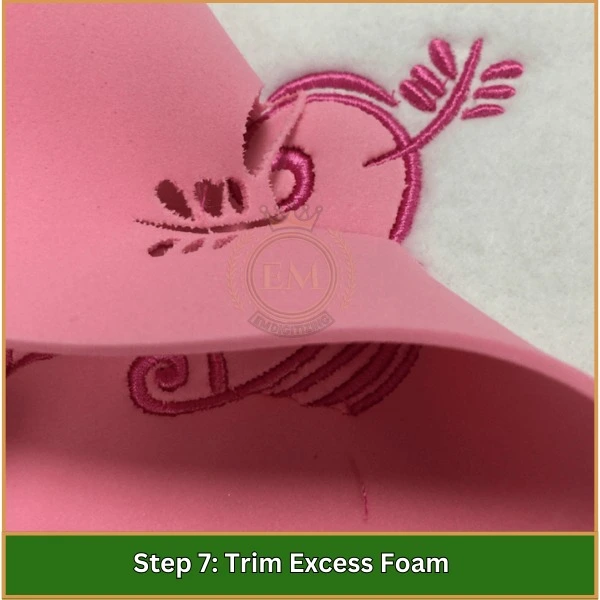
Une fois la broderie terminée, retirez soigneusement tout excès de mousse autour des points.
Cela peut être fait en retirant doucement la mousse ou en utilisant de petits, des ciseaux pointus pour couper près de la couture.
Marcher 8: Nettoyer
Effectuez tout nettoyage nécessaire autour du motif pour éliminer les petites particules de mousse et garantir une finition soignée..
Marcher 9: Inspection finale
Inspectez l'article brodé pour vous assurer que la mousse s'est correctement dilatée et que le motif apparaît comme prévu.. Effectuer des ajustements aux paramètres de la machine si nécessaire pour de futurs projets.
Marcher 10: Touches finales
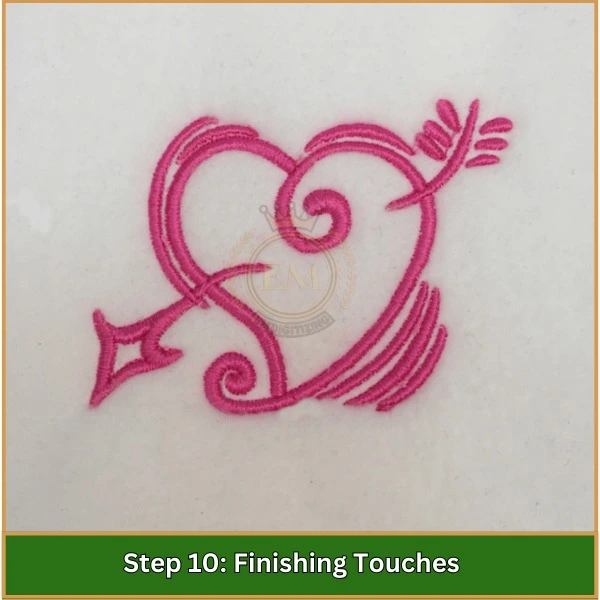
Appliquez les touches finales telles que presser l'article brodé sous un tissu pour vous assurer que les points sont fixés et que la mousse n'est pas visible..
Comment entretenir correctement la broderie en mousse gonflée 3D
Prendre soin de votre broderie 3D est essentiel pour préserver son effet en relief et son aspect général.:
- Lavage doux: Lavez à la main ou utilisez un cycle délicat en machine pour vos articles brodés. Évitez les détergents agressifs ou l'eau de Javel, car ils peuvent affaiblir la mousse et endommager les points de suture.
- Séchage: Séchez toujours vos pièces brodées à l'air libre. L'utilisation d'un sèche-linge peut faire perdre à la mousse son gonflement ou déformer les points..
- Stockage: Rangez votre broderie à plat ou pliée délicatement pour éviter d'écraser la mousse. Assurez-vous qu'aucun objet lourd n'est placé sur le motif pour conserver sa forme..
- Exposition à la chaleur: Lors du repassage, utilisez une chaleur douce et placez un chiffon sur le motif pour protéger la mousse et les points des dommages causés par la chaleur..
- Inspection: Après le lavage, inspectez votre broderie pour déceler tout problème de points lâches ou de mousse et résolvez-les rapidement pour que le motif reste à son meilleur..
Erreurs courantes à éviter dans la broderie en mousse 3D
- Couverture de points insuffisante: Assurez-vous que le design recouvre entièrement la mousse pour un aspect poli., aspect professionnel.
- Épaisseur de mousse incorrecte: Select the correct foam thickness based on your design’;s largeur pour assurer une bonne couverture.
- Mauvaise sélection d’aiguille: Utilisez toujours des aiguilles pointues adaptées à la broderie 3D pour percer proprement la mousse..
- Négliger les tests: Effectuez des tests sur des chutes de tissu pour affiner la densité et la tension des points avant de commencer..
- Sauter des points de contour: Cousez toujours un contour en premier pour fixer la mousse et stabiliser la zone de motif..
- Des conceptions trop compliquées: S'en tenir au simple, des designs audacieux pour de meilleurs résultats. S'appuyer sur une numérisation experte pour la broderie en mousse gonflée peut garantir que votre motif est bien adapté aux effets 3D..
- Ne pas éliminer correctement l’excès de mousse: Coupez soigneusement tout excès de mousse pour une finition soignée et propre..
Conclusion
En incorporant de la broderie 3D en mousse gonflée dans vos projets, vous pouvez faire passer vos créations au niveau supérieur, leur donner un coup de pouce, aspect dimensionnel qui se démarque vraiment. Avec les bons matériaux et techniques, votre broderie éclatera et créera une impression durable.
If you’;êtes prêt à aller plus loin dans vos créations, EMDigitizing est là pour aider les professionnels services de numérisation. Nous offrons des délais d'exécution rapides, prix abordable, et garantissez des résultats de haute qualité à chaque fois. Plus, en tant que nouveau client, tu peux profiter 50% hors de votre première commande!
Contactez-nous dès maintenant pour profiter de cette offre spéciale.
FAQ
A broder avec de la mousse gonflée, placez simplement la mousse sur le tissu avant de coudre le motif, puis brodez dessus pour créer un relief, effets dimensionnels.
La mousse gonflée pour la broderie peut être achetée en ligne auprès de divers détaillants spécialisés dans les fournitures de broderie., ainsi que dans les magasins d'artisanat et les ateliers de couture.
Pour réaliser une broderie gonflée, couchez de la mousse gonflée sous le tissu, fixez-le en place avec un spray adhésif ou du ruban adhésif, puis brodez le motif sur la mousse pour créer des effets de relief et de texture.
